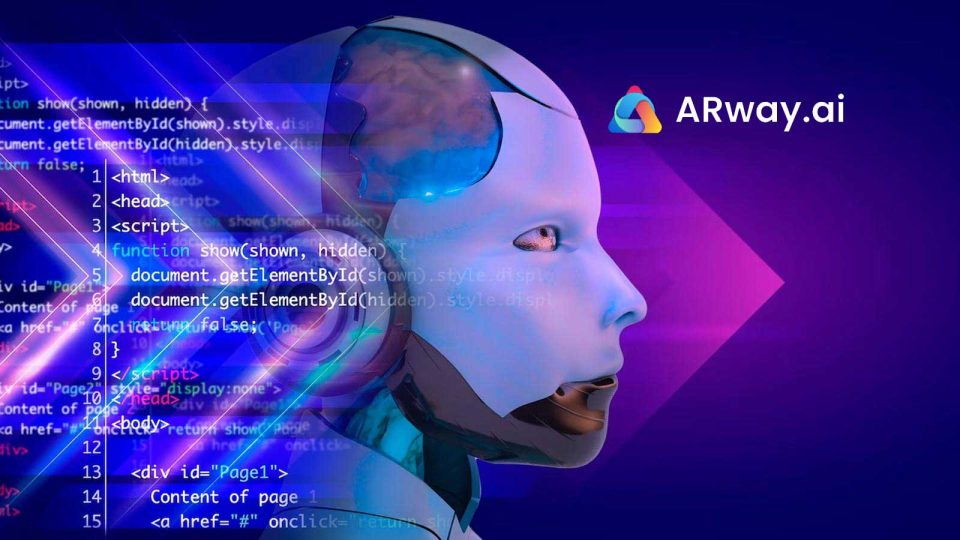ARway.ai The Spatial Computing Company Launches Apple Vision Pro Compatibility and Early Access for ARwayKit SDK
ARway.ai (“ARway” or the “Company”) is an AI powered Augmented Reality Experience platform with a disruptive no-code, no beacon spatial computing solution enabled by visual marker tracking with centimeter precision is pleased to announce it has launched its compatibility with Apple’s Vision Pro alongside the revolutionary headset’s recent release on February 2. In addition, the Company is now accepting submissions for their early access list for the ARwayKit SDK for the Apple Vision Pro. The user-friendly ARwayKit SDK will provide a cross-platform developer tool across iOS and RealityOS enabling access to apps with location-persistent AR content and immersive experiences across both headsets and smartphones.
Recommended: From Hype to Reality: AI’s Role in Augmenting Digital Transformation
After years of anticipation, ARway is thrilled to announce compatibility with the Apple Vision Pro – a revolutionary device set to redefine augmented and mixed reality experiences. With Apple’s Vision Pro, users can experience ARway’s cutting edge technology like never before with its hands-free capabilities. ARway leverages advanced spatial computing technology to merge the digital and physical worlds, enabling users to navigate and interact seamlessly. The Vision Pro form factor enhances the user experience, providing a hands-free approach to augmented reality and making every interaction more immersive and engaging, making it a perfect fit with the ARway platform.
CEO Evan Gappelberg commented: “The long awaited, highly anticipated Apple Vision Pro AR glasses are FINALLY here! We have been waiting for this moment for years and we knew eventually this moment would come. ARway’s compatibility with the Vision Pro is game changer for the industry, marking the next step in hands-free immersive experiences that blend the physical and digital worlds. This is a huge opportunity for early investors to invest in the next multi-decade multi-trillion dollar megatrend… which is spatial computing and augmented reality technology.” He continued, “ARway is purpose-built for the Vision Pro, and our Company is perfectly positioned to capitalize on this opportunity and revolutionize the way consumers interact with digital information. The Vision Pro will augment the iphone, and will obtain mass adoption in the years to come – which will be a MASSIVE boost for the augmented reality industry. With ARway’s technology and the Apple Vision Pro, indoor navigation will soon be as ubiquitous as outdoor navigation and we’re excited to see ARway.ai out front as this tectonic shift unfolds.”
The launch is accompanied by a new landing page on the ARway’s website providing further information and details, and the Company is also now accepting submissions for their early access list for the ARwayKit SDK for the Apple Vision Pro. The user-friendly ARwayKit SDK will provide a cross-platform developer tool across iOS and RealityOS enabling access to apps with location-persistent AR content and immersive experiences across both headsets and smartphones.
Recommended: Role of LLMs and Advanced AI in Cybersecurity: Predictions from HP Inc. Executives
ARway announced the Company was selected to participate at Apple’s Vision Pro Developer Labs in Cupertino, California. As a result, ARway completed a first build of the ARway Platform on Apple’s Vision Pro hardware and realityOS operating system, which led to the delivery of optimal performance on iOS devices and the seamless integration into Apple’s ecosystem.
When Apple announced the Apple Vision Pro would be available beginning Friday, February 2nd, ARway began experience an increase in global interest and deals, as the Vision Pro has stoked demand for ARway’s spatial computing and augmented reality navigation platform. Since then ARway has signed multiple new deals including Suteki, Walk.app, African Technopreneeurs, F3 Geomatic, Localiza, and more. ARway’s technology has various use cases across a multitude of industries including stadiums and venues, events and tradeshows, retail, museums, hospitality, real estate, universities, hospitals, and more.
Recommended: How CIOs Can Foster an AI-Inclusive Culture
[To share your insights with us as part of editorial or sponsored content, please write to sghosh@martechseries.com]


